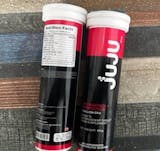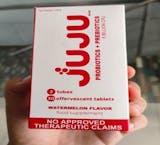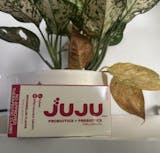People who care about beauty and health want their skin to be glowing and even-toned, which has led to a huge interest in skin care products, especially skin whitening supplement.
These products have captured the imagination of individuals seeking to enhance their complexion, drawing attention for their potential effectiveness in achieving a lighter and more luminous skin tone.
At the forefront of this beauty trend is the key ingredient, glutathione, a powerful antioxidant that plays a pivotal role in promoting skin health.
Renowned for its skin-brightening properties, glutathione is increasingly recognized as a vital component in the formulation of skin whitening supplements, underscoring its significance in the pursuit of a flawless and vibrant complexion.
As people keep looking for new ways to improve their skin care, the appeal and promise of these vitamins show how important they are in the beauty and self-care world, which is always changing.
IN THIS ARTICLE
11. Conclusion
Understanding Glutathione
GLUTATHIONE (pronounce “gloota-thigh-own”) is the most crucial molecule for maintaining health and warding off age-related decline, cancer, cardiovascular disease, dementia, and other debilitating conditions, and is also essential for treating conditions as varied as autism and Alzheimer’s. It’s the granddaddy of antioxidants, as I like to say.
The good news is that glutathione can be made naturally by the body. The bad news is that your glutathione stores will be depleted by toxins from a poor diet, pollution, poisons, drugs, stress, trauma, ageing, infections, and radiation.
Because of this, oxidative stress, free radicals, viruses, and cancer are able to destroy cells at will. When your liver is overworked and injured, it can no longer effectively detoxify your body.
What is the procedure? Glutathione’s sulphur (SH) atoms are the key to its success. Sulphur is a stinky, gummy molecule. Like fly paper, it attracts and retains harmful substances such as free radicals and toxins such as mercury and other heavy metals. Glutathione is normally regenerated in the body, but when the toxic burden is too high, this process breaks down. That’s why we’ve run into this mess.
Glutathione and Skin Health
Free radicals are unstable chemicals that can damage cells and speed up the ageing process; glutathione’s antioxidant properties allow it to neutralize these dangerous atoms and molecules.
Pollution, ultraviolet light, and cigarette smoke are just a few examples of environmental elements that might generate free radicals. Inflammation and metabolic processes also play a role. Glutathione serves to protect the skin from these toxic substances & promotes healthy cell function.
In addition to its antioxidant properties, glutathione also plays a role in the production of melanin, the pigment that gives skin its color. Studies have shown that glutathione can help to reduce the production of melanin, which can lead to a more even skin tone and reduce the appearance of dark spots and hyperpigmentation.
Glutathione also helps to boost the immune system, which can have a positive impact on the health of the skin. Inflammation and other skin diseases like acne and eczema are possible results of a weakened immune system. Glutathione’s immune-boosting properties make it an effective anti-inflammatory and skin-health booster.
Last but not least, glutathione contributes to the body’s natural detoxification procedures. It helps to remove dangerous pollutants and chemicals from the human body, which can have a favorable impact on the health and appearance of the skin. Glutathione’s detoxifying effects make it a useful tool for concealing skin flaws.
Brightening and Lightening Effects
We’ll examine the distinct methods for caring for your skin.
What exactly is skin brightening?
When you get rid of dead, dull skin cells, your skin’s natural radiance is restored. Most people include a skin-brightening step in their daily skincare routine because of the dual benefits it provides (rejuvenating your natural skin tone and purifying the skin).
Products designed to brighten the skin work by exfoliating away dead skin cells, revealing younger, healthier skin underneath. Also, retinol and other anti aging chemicals are typically used in brighteners.
Is it safe to lighten your skin?
When used properly, skin brightening products are completely safe. Some manufacturers make an effort to stick to the original intent of the product, which was to reveal your true skin color and enhance its glow.
However, some brands include harmful and unfamiliar substances that might be harmful to your skin in the long run. Choose a brightener with a safe ingredient list, including vitamin C, vitamin A, alpha hydroxy acids, or beta hydroxy acids.
Is skin brightening long-term?
If you incorporate skin brightening into your regular skincare routine, you can be confident that the results will last. However, if you stop using your brightener, your skin may not instantly become dull, but it will gradually lose its natural brightness as nutrients are depleted.
What exactly is skin lightening?
Skin lightening, despite what some may think, has incredible benefits for your skin. If you have hyperpigmentation or dark spots on your face, a skin lightener can help balance out your skin tone and diminish any discoloration.
Skin lightening isn’t meant to bleach your skin, but rather to fade away discolorations and imperfections.
Is it safe to lighten skin?
The purpose of skin lightening is not bleaching but rather the removal of dark patches caused by increased melanin production. As long as they have the correct components, lightening creams are safe to use.
In fact, persons with even skin tone utilize lightening crèmes to avoid future hyperpigmentation. Since avoiding an infection before it takes hold under the skin is preferable to treating it after the fact.
These creams are available both with a dermatologist’s prescription and without. Arbutin, retinol, and vitamin C are all contained in common skin whitening pill and creams are considered safe components.
In addition to creams, there are several all-natural options for reducing the appearance of dark spots on the skin. Lemon, mulberry, and aloe vera are just a few examples.
Is skin lightening a permanent procedure?
Lightening the skin is not a permanent process and requires regular upkeep. Sun damage, blemishes, and acne will continue to be a part of your skin’s natural history.
If you don’t maintain your skin-lightening routine, your skin will become uneven in tone and discoloured. On that topic employing an effective skin lightening serum on your even skin will help you eliminate pigmentation before it starts.
Reducing Wrinkles and Fine Lines
Glutathione, a powerful antioxidant produced naturally in the body, plays a pivotal role in promoting youthful skin by effectively reducing signs of aging, particularly wrinkles and fine lines.
As the body ages, the production of glutathione tends to decline, leading to increased oxidative stress and damage to the skin cells. Glutathione counteracts this process by neutralizing free radicals, which are a major contributor to premature aging.
By doing so, glutathione helps preserve the structural integrity of the skin, preventing the breakdown of collagen and elastin fibers that are essential for maintaining skin elasticity. Additionally, glutathione supports the skin’s natural repair mechanisms, aiding in the reduction of existing wrinkles and fine lines.
Its ability to inhibit melanin production also contributes to a more even skin tone, further enhancing the appearance of youthful and radiant skin. Incorporating sources of glutathione or its precursors through diet, supplements, or topical applications can be a valuable strategy in the pursuit of a more youthful complexion.
Detoxifying the Skin
The skin is a major organ in the human body. It serves many critical purposes, including preventing dehydration and infections. It’s also crucial in keeping things like body temperature, feeling, insulation, and vitamin D production all in check.
Toxic compounds can accumulate in your body and on your skin due to exposure to chemicals in water, grime, cosmetics, pollution, hormone abnormalities, and an improper diet.
Here’s a simple metaphor: picture yourself making your way down an open path when suddenly you encounter barriers. These roadblocks require more effort on your part to overcome.
In the same way, inflammation, redness, and blemishes emerge on the skin when it hasn’t been properly detoxified. Reversing and controlling these changes is possible with a skin cleanse as part of a consistent skincare practice. Additionally, it can brighten your complexion and minimize the indications of skin damage caused by pollutants.
You should set aside time each week to purge your body of toxins, dirt, and dead skin. Bring your skin’s appearance back to normal, or even higher than it’s ever been.
Detoxing the skin’s surface, as opposed to the body’s internal organs, is more effective at shielding the skin from environmental damage. A skin detox will remove any buildup, dirt, or other debris from your skin. Your skin purges toxins, rebalancing its pH in the process and undergoing a host of other healthy changes.
Zits and spots are a common side effect of detoxification that many people are unaware of. Your skin may experience an outbreak, clear up, and then experience another outbreak.
Typically, your skin will clear up after purging a single localized source of toxins. Then it delves farther to locate a another staking pocket, triggering yet another type of breakout. These outbreaks can be severe, but with some persistence and self-control, you can clean your face with a strict skincare routine.
Improving Hydration and Moisture
Hydration
Humectants are substances that attract water from the environment to the skin, hence increasing the skin’s hydration. They also transport water from the dermis (the skin’s middle layer) to the epidermis (its outermost layer).
Some items that can help you stay hydrated are:
- honey
- gelatin
- urea
- sorbitol
- panthenol
- glycerin
- hyaluronic acid
- alpha hydroxy acids
Moisture
Humectants are hydrating substances that also increase moisture. Other moisturizers can be found in:
- Occlusives: These lipids and oils create a barrier on the skin that keeps moisture in. Beeswax, mineral oil, petrolatum, and lanolin are all examples of such substances.
- Emollients: These help to improve the look and feel of the skin by bolstering its barrier function. Fatty acids & fatty alcohols are two such examples.
- Protein rejuvenators: These proteins help restore levels of key proteins, which may have a rejuvenating effect on the skin. Collagen, keratin, & elastin are all examples of such proteins.
A study from 2017 found that there is no agreement among specialists on how to define moisturizers. That leaves some room for confusion between hydrators and moisturizers. Therefore, the terms emollient and moisturizer are commonly used synonymously.
Sunburn can occur after as little as 15 minutes in direct sunlight.
Here’s how to keep your skin protected from the sun before you venture outside to enjoy the spring weather.
PROTECTING AGAINST SUN DAMAGE
Always apply sunscreen
The SPF is a rating system for the efficacy of sunscreens in protecting against the sun’s harmful ultraviolet (UV) rays. A higher score indicates a higher level of safety. Regardless of the temperature or cloud cover, you should always use a broad-spectrum sunscreen with a minimum SPF of 15.
When you see the words “broad-spectrum” on a sunscreen’s packaging, you know it effectively blocks both UVA and UVB rays. Premature ageing and skin cancer are caused mostly by UVA radiation since they can penetrate deeper into the skin. Sunburn is caused by UVB rays, which penetrate the upper layers of skin.
Remember to apply liberal amounts of sunscreen to any skin that will be out in the sun. Seek assistance with areas like your back that are out of reach. Some other considerations regarding sunscreen application are as follows:
- Anti-burn lotion loses its effectiveness over time. If you swim, sweat, or towel off after being in the sun for more than two hours, you should reapply sunscreen.
- Without an expiration date, sunscreen should be used within three years, and even then, it won’t last as long as it would if it hadn’t been exposed to heat. You should verify that your sunscreen has not expired.
- The same compounds found in sunscreens can also be found in various cosmetics, such as lip balms. Don’t use them alone unless they have an SPF of at least 15.
Avoid direct sunlight
Avoid going outside between 10 and 4 if you can help it.
Look for some shade
Seeking shade from an umbrella, tree, or other object can help prevent sunburn and skin cancer. Sunscreen and protective clothes should be used even in the shade to prevent skin damage.
Consider your clothes
Wearing protective clothing against the sun’s rays is essential. The finest defense can be found in tightly woven materials. When it comes to blocking the sun’s rays, a black T-shirt is more effective than a lighter one and a damp T-shirt is virtually useless. To combat sun damage, several brands create apparel that is accredited to international standards.
If that’s not possible, consider substituting a T-shirt or a beach cover-up. Keep in mind that the SPF rating of the average T-shirt is less than 15, thus further measures should be taken to ensure your safety.
Wear a hat
Wearing a hat with a wide brim that may cover your face, ears, and the nape of your neck is the best approach to avoid sunburn. Canvas, or any tightly woven fabric, is the greatest choice for blocking harmful UV radiation. Don’t wear a straw hat during the daytime. In terms of UV protection, a darker hat may be preferable.
You should also shield your ears and the base of your neck with your cap if you wear one. Cover up, apply sunscreen with broad-spectrum protection, or seek shade.
Sunglasses are also essential
Wearing sunglasses can help prevent cataracts by shielding your eyes from damaging ultraviolet light. Additionally, they shield the delicate area around your eyes from harmful UV rays.
Sunglasses that protect from both ultraviolet A and ultraviolet B rays are optimal. The most effective sunglasses are wraparound styles because they prevent harmful rays from entering through the sides.
Glutathione for Acne-Prone Skin
Glutathione, a powerful antioxidant naturally produced in the body, plays a crucial role in managing and preventing acne breakouts, particularly for individuals with acne-prone skin. This tripeptide molecule helps neutralize free radicals, reducing oxidative stress that can contribute to inflammation and the formation of acne.
By promoting detoxification, glutathione helps the body eliminate toxins that may otherwise exacerbate skin conditions. Furthermore, glutathione supports the immune system, aiding in the defense against acne-causing bacteria.
Additionally, glutathione has been recognized for its skin-brightening properties, which can contribute to a more even skin tone and minimize the appearance of post-inflammatory hyperpigmentation resulting from acne.
While oral supplementation and topical applications of glutathione are available, consulting with a healthcare professional is essential to determine the appropriate dosage and form for individual skin care needs.
Oral vs Topical Glutathione
Oral and topical forms of glutathione offer distinct advantages and drawbacks, catering to diverse preferences and needs. The oral administration of glutathione is convenient, allowing for easy integration into daily routines.
Moreover, it provides systemic benefits by enhancing overall antioxidant capacity and supporting detoxification processes. However, the drawbacks of oral glutathione include potential degradation in the digestive tract and variable absorption rates, which may limit its efficacy.
On the other hand, topical glutathione offers localized application, potentially targeting specific areas for skin benefits. This method bypasses the digestive system, avoiding degradation concerns, but its drawback lies in the limited absorption through the skin barrier.
Additionally, the stability and formulation of topical products may affect their overall effectiveness. Therefore, choosing between oral and topical glutathione depends on individual preferences, desired outcomes, and the specific challenges associated with each administration method.
Side Effects and Precautions
- Allergic Reactions: Some individuals may experience allergic reactions to glutathione, presenting as itching, rash, or difficulty breathing. If any of these symptoms occur, medical attention should be sought immediately.
- Digestive Issues: Gastrointestinal discomfort, nausea, and vomiting have been reported in some cases. It is advisable to take glutathione with food to minimize these effects.
- Headaches and Dizziness: Users might experience headaches or dizziness, especially during the initial stages of supplementation. If these symptoms persist, a healthcare professional should be consulted.
- Interference with Medications: Glutathione may interact with certain medications, potentially affecting their efficacy. Individuals taking medications should consult their healthcare provider before starting glutathione supplementation.
- Electrolyte Imbalance: Prolonged or high-dose use of glutathione may lead to electrolyte imbalances. Regular monitoring of electrolyte levels is recommended, especially in individuals with pre-existing health conditions.
- Consultation with Healthcare Provider: Before starting a glutathione regimen, individuals should consult with a healthcare professional, particularly those with pre-existing medical conditions or those taking medications.
- Dosage and Duration: Adhere to recommended dosage guidelines. Excessive intake may lead to adverse effects. Long-term use should be monitored closely under the guidance of a healthcare provider.
- Pregnancy and Breastfeeding: Pregnant or breastfeeding individuals should exercise caution and consult with a healthcare provider before using glutathione supplements, as there is limited research on its safety in these populations.
- Monitoring for Allergic Reactions: Users should be vigilant for signs of allergic reactions, such as rash, itching, or difficulty breathing. If observed, prompt medical attention is crucial.
- Regular Health Check-ups: Regular health check-ups, including liver and kidney function tests, are advisable for those using glutathione supplements to detect any potential adverse effects early on.
It’s important to note that individual responses to glutathione can vary, and the information provided here is a general guideline. Personalized advice from a healthcare professional is essential for anyone considering glutathione supplementation.
How to Choose Quality Glutathione Products
Absorbability
If the glutathione supplement you take doesn’t provide GSH in a form your body can utilize, it won’t do you much good to take it. Glutathione supplements, including pills and under-the-tongue drips, are widely used despite their questionable efficacy.
GSH is created in the body through a dietary amino acid synthesis process. Therefore, when we eat GSH, our gut breaks it down into these components. Eating foods that boost GSH production (as described by Auro’s founder, Dr. Nayan Patel, in The Glutathione Revolution) will improve your health and performance.
When a reduced form of the glutathione molecule is used, however, transdermal supplements like Auro’s proprietary Gutaryl are significantly more effective. In order to get the most out of each spray, Auro is one of the few brands to employ sub-nanotechnology.
Potency
The potency of a supplement should also be determined. You may absorb a product just well, but it won’t do any help if there’s not a high enough concentration of GSH.
You can get a good idea of the product’s efficacy just by smelling it. The presence of a sulfur-like odour indicates that the glutathione is still functioning and ready to do its job. The fragrance should fade within a few minutes after application.
Application Ease and Safety
Whole GSH molecules administered via injection or intravenous infusion are another popular supplement form. This is absolutely absorbable & potent but it also demands visits to a doctor’s office or clinic.
That’s less secure than a transdermal solution and takes more time and money to implement. If you want to acquire GSH this way, you should do so only at a recognized clinic with trained professionals on staff.
Longevity
You also need to know how long the glutathione supplements you take will work. GSH is rapidly depleted when administered intravenously or by injection. If you’re hoping for permanent improvements, this may require multiple clinic appointments.
How GSH administered orally or intravenously affects glutathione levels over time is also unknown. Since it takes your body longer to digest GSH when taken orally, transdermal supplements could prove to be the preferable option. The daily use of sprays and lotions is also more convenient.
Transparency of the Manufacturer
While purchasing GSH tablets or injections online is convenient, it does not guarantee safety.
Think about if you’re buying from a store that sources from a variety of manufacturers or whether you’re going to the source yourself. Can you contact the maker if you have any questions? At Auro, for example, we openly declare the substances we use (all of them the finest grade) and follow best production practices.
It’s not necessary to feel overwhelmed while searching for the best vitamin. Now that you know how to evaluate the potency, efficiency, and security of GSH supplements, you can confidently investigate your selections and settle on a glutathione purchase strategy.
Juju’s Effervescent Glutathione
Juju’s Effervescent Glutathione product stands out in the market for its exceptional features and numerous benefits. Unlike traditional glutathione supplements, Juju’s formulation comes in an effervescent form, making it not only convenient but also more readily absorbed by the body.
The effervescent delivery method ensures a faster and more efficient absorption of glutathione, a powerful antioxidant known for its skin brightening and anti aging properties. Additionally, Juju’s product is enriched with a proprietary blend of vitamins and minerals that work synergistically to enhance the overall health and vitality of the skin.
This unique combination not only promotes a more even skin tone but also supports the body’s natural detoxification processes.
The effervescent format not only enhances the bioavailability of glutathione but also provides a refreshing and enjoyable way to incorporate this powerful antioxidant into one’s daily routine.
Juju’s Effervescent Glutathione is a standout choice for individuals seeking a convenient and effective solution for skin health and overall well-being.
Frequently Asked Questions
How do skin whitening tablets work?
These supplements often contain ingredients like glutathione, vitamin C, and other antioxidants that may inhibit melanin production or promote its reduction. They may also address issues like hyperpigmentation and promote an even skin tone.
Are skin whitening supplements safe?
The safety of skin whitening supplements depends on the specific ingredients and the individual’s health. It’s essential to consult with a healthcare professional before using any such products, as some ingredients may cause adverse effects or interact with medications.
How long does it take to see results from skin whitening supplements?
Results vary among individuals. Some people may notice changes in a few weeks, while others may take longer. Consistent use, along with a healthy lifestyle, can contribute to better outcomes.
Can skin whitening supplements be used by everyone?
Not all skin whitening supplements are suitable for everyone. Pregnant or breastfeeding women, individuals with certain medical conditions, or those on specific medications should consult with a healthcare professional before using these supplements.
Do skin whitening supplements have any side effects?
Side effects may vary based on the ingredients. Common side effects may include gastrointestinal issues, allergic reactions, or interactions with medications. It’s crucial to be aware of potential side effects and discontinue use if any adverse reactions occur.
Conclusion
When considering a skin whitening supplement, it’s crucial to prioritize safety and efficacy. Look for products containing scientifically proven ingredients such as vitamin C, niacinamide, and alpha-arbutin, known for their skin brightening properties.
Before incorporating any supplement into your routine, consult with a healthcare professional to ensure it aligns with your individual health needs. Additionally, be wary of products making unrealistic claims or containing potentially harmful substances.
A reputable brand with positive customer reviews and transparent ingredient lists is more likely to deliver the desired results without compromising your skin health.
Always follow the recommended dosage, and remember that achieving and maintaining healthy skin involves a holistic approach that includes a balanced diet, hydration, and sun protection.
When in doubt, seek guidance from a dermatologist to tailor a skincare regimen suitable for your specific skin type and concerns, which may include the use of a skin whitening supplement.










